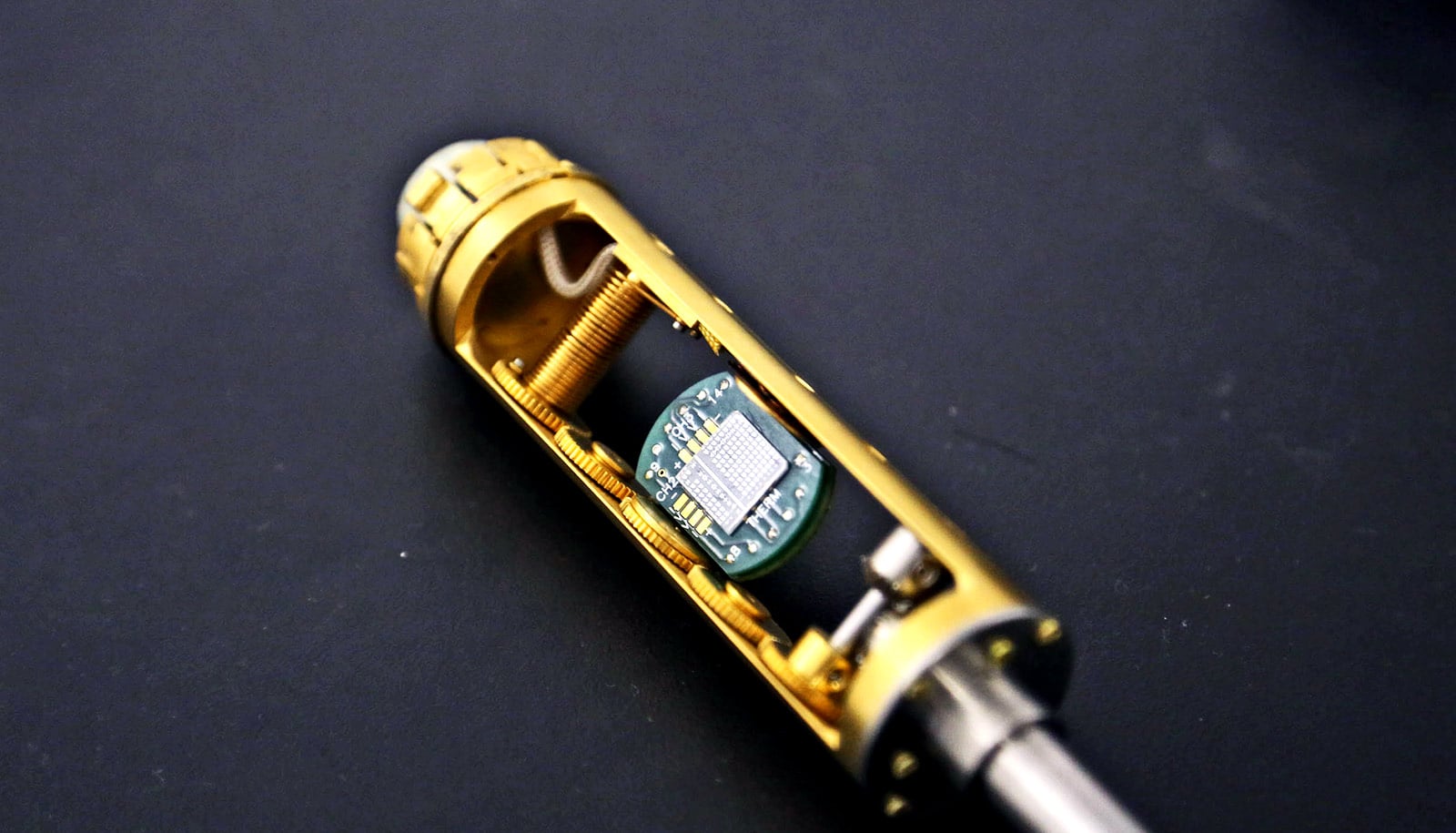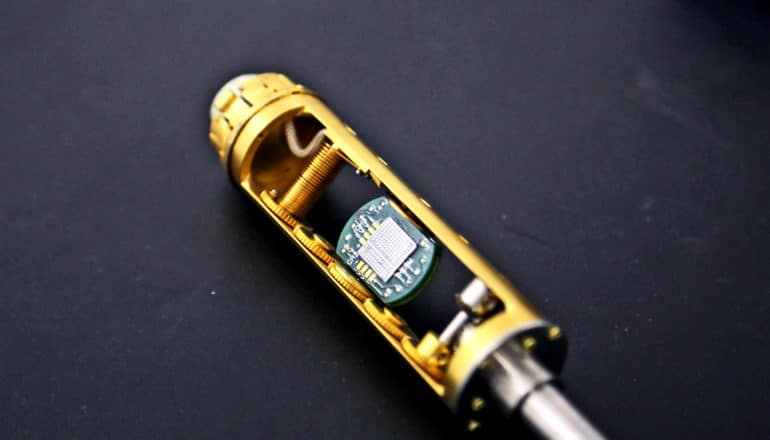
Future magnon torque based devices such as this could allow for faster electronic gadgets that require less power and do not overheat. (Credit: NUS)
‘Spin waves’ could keep your phone from overheating
Researchers have a new way to make electronic devices faster, less power-hungry, and less liable to overheat.

A new way of using “spin waves” could lead to faster electronics and keep devices like your phone from overheating, researchers report.
Modern computer memory encodes information by switching magnetic bits within devices. The new method can switch magnetization at room temperature for more energy-efficient spin memory and logic devices.
Traditional electronic chips suffer from substantial “Joule heat,” which occurs due to the flow of an electric current producing high temperatures through the rapid motion and frequent collision among moving charges inside the devices.
This issue not only causes a large amount of power dissipation, but also hinders the chip’s processing speed and limits the number of chips that can be incorporated into appliances.
“We always encounter such problems and inconveniences when using our phones, computers and other electronic devices. We often find that these devices are becoming ‘hot’ and ‘slow,’ moreover, we need to charge them frequently and have to bring another portable charger sometimes,” explains team leader Yang Hyunsoo, a professor in the electrical and computer engineering department at the National University of Singapore.
Flipping magnetization with spin waves
Rather than adopting standard electron injection methods used in traditional electronics, Yang’s team creatively used “spin waves” to switch magnetization. Spin waves are propagating disturbances in the ordering of magnetic materials, and from the quasiparticle point of view, spin waves are known as “magnons.”
The team built a bilayer system consisting of an antiferromagnetic magnon transport channel and a topological insulator spin source. In a world’s first, they then successfully demonstrated spin wave driven magnetization switching in the adjacent ferromagnetic layer with a high efficiency at room temperature.
The new switching scheme based on spin waves can avoid moving charges. Therefore, devices could produce much less Joule heat and power dissipation. The advance of spin wave based switching could open a new avenue for energy-efficient chips.
“The spin waves (magnons) can deliver spin information even in insulators without involving moving charges. This unique property potentially allows longer spin propagation but with lower dissipation compared to electron spins,” explains first author Wang Yi, a research fellow in the Spin and Energy Lab.
“Then we can control the magnetization if we transfer the spin information from the magnons to the local magnetization, which can be understood as ‘magnon torques,'” says Wang. Just as a linear force is a push or a pull, a torque can be thought of as a twist to an object. “Hence, this new way to manipulate the magnetization can be used for future data memory and logic devices,” he adds.
“Our work first shows that the magnon torque is sufficient to switch the magnetization at room temperature. Even the efficiency of the magnon torque is comparable with previously pursued electrical spin torque efficiency. We believe it can be substantially enhanced by engineering devices further, so that the magnon torque will become more energy efficient,” Yang says.
Looking forward
“We know that the electrical spin torque has opened the era for spintronic device applications such as magnetic random access memories (MRAMs). We believe our report of the new magnon torque scheme for magnetization switching is a game-changing idea in spintronics. It will invigorate not only a new research area in magnonics, but also practical devices operated by magnons,” Wang says.
Next, the research team will further engineer the efficiency of magnon torques and explore all magnon devices without involving electrical parts. In addition, the operation frequency of spin waves is in the terahertz range. Terahertz devices can transmit data at significantly higher speeds than currently possible.
“Therefore, magnon torque based devices will allow the implementation of ultrahigh speed applications in the future,” Yang says.
The study appears in Science.
Source: National University of Singapore
The post ‘Spin waves’ could keep your phone from overheating appeared first on Futurity.
Share this article:
This article uses material from the Futurity article, and is licenced under a CC BY-SA 4.0 International License. Images, videos and audio are available under their respective licenses.
Related Articles:
‘Stack of pancakes’ may explain odd magnet behavior
May 15, 2023 • futurityTeam creates ‘holy grail’ of superconductors
Oct. 15, 2020 • futurityLinks/images:
- https://www.futurity.org/magnetic-data-storage-upgrade-1537302/
- https://www.futurity.org/spintronic-memory-ferrimagnets-1942852/
- https://doi.org/10.1126/science.aav8076
- http://news.nus.edu.sg/research/nus-researchers-find-potential-solution-overheating-mobile-phones
- https://www.futurity.org/spin-waves-phone-overheating-2228032/
- https://www.futurity.org


